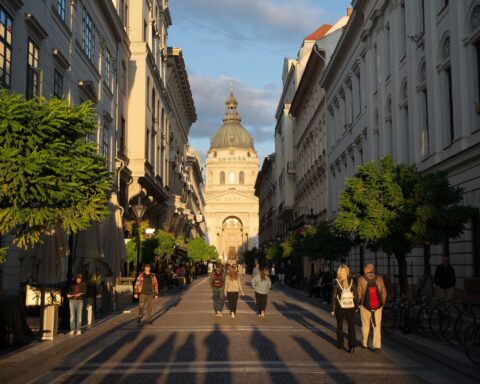“Do you have a toilet here?”
“We’re an establishment under 10 people, we don’t have to have a toilet. Try to go to Ostrich’s…, well, but they are closed now.” I turned around and carried on reading a Zlin city magazine about culture, contemporary successes of Zlin with an unpleasant feeling in my bladder. However, the only thing I was thinking about was where the woman, who runs the coffee shop, goes to pee. Does she also go to the Ostrich’s? What if the ostrich isn’t at home? What if it’s stuck its head in the sand and stopped communicating? When she leaves, who takes care of the espresso machine?
My mind was full of questions without answers. I carried on reading. I was reading articles which referred to the legacy of Tomas Bata. I clearly remember that Tomas Bata said: “Our customer, our master”. What does it actually mean? It means being willing to help customers of an establishment for me. Customers should be leaving with a feeling that they had at least a small value for an owner.
New establishments are crammed with design furniture, cool marketing slogans, perfect coffee and food. That’s how today owners probably image the citation: “Our customer, our master”. It is undisputable that these things have the influence on customers.
Nevertheless, It has a different meaning and a different value for me. It means being willing to help customers. It is something what I will remember as a helpful gesture – the gesture with an attribute of humanism. These might be a pleasing conversation, passing a napkin or being allowed to use the toilet. Even though the law says something else about the toilets.
These gestures are practically for free and have an immense power. After them, I will be leaving the establishment as a gentleman (master).
After drinking up the coffee, I paid and asked: “Do you have a toilet at all?” “We do, but only for a personal use.”
I didn’t leave the coffee bar as a gentleman but with a finding that I am not a person, because the personal-use only toilet wasn’t for me.






